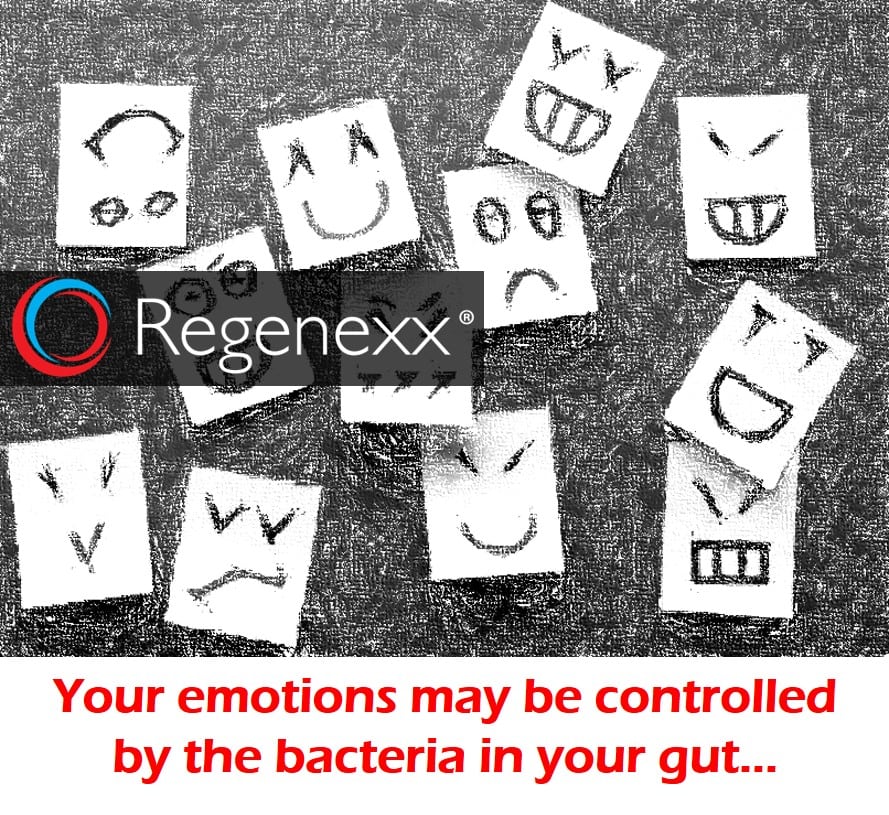The Bacteria in Your Gut May Define Your Emotions

If you’re depressed you take an antidepressant; that’s how modern medicine works. These mess with chemicals in your brain to turn a switch that makes you undepressed. However, what if it’s all been wrong? What if the types of bacteria we have in our gut are more important for our mental health?
Gut Bacteria by Any Other Name
Gut bacteria, microbiome, gut flora, microbiata—no matter what you call it, it’s referring to the community of microorganisms that live and thrive inside our intestines. On a bigger scale, the majority of the immune system resides inside our microbiome, and yeasts and parasites live among the bacteria there as well. There are both good and bad bacteria in our gut, and an important ratio of both is important.
The condition of our gut microbiome is far-reaching and impacts just about every nook and cranny of our bodies. When the gut microbiome is under stress, the entire body is under stress. And, of course, diet is the key player. Unhealthy food will allow bad bacteria to flourish and overpower the good, while healthy foods keep the good bacteria in command. We’ve shown the effects of the condition of our gut microbiome before in some previous studies we’ve highlighted.
A Review of Gut Bacteria Connections
A study that researched sewage in 71 US cities found higher amounts of bad bacteria (interestingly, Bacteroides, which is highlighted in our study today) in the sewage of cities with higher obese populations and lower amounts of bad bacteria in cities with more thin populations. We showed another link between the gut and brain earlier this year when we looked at a study suggesting the key to Parkinson’s may be found in our gut as the gut of Parkinson’s patients contained damaging fibers also found the nerves of the brain.
Another study we covered just last month found that metformin, taken for type-2 diabetes works because it seems to alter the gut bactera, and it’s the altered gut bacteria (not the metformin itself) that is essential for blood-sugar control—something that could likely be accomplished without the drug and its adverse effects. Gut bacteria also seems to have an impact on stem cells. While good bacteria may have a positive effect on stem cells, bad bacteria may actually hurt our stem cells by leading to whole body inflammation, weight gain, and ultimately leaky gut and metabolic syndrome from obesity, high blood pressure, and even allergies. This whole metabolic-syndrome process creates less potent stem cells. Artificial sweeteners, such as Splenda, have also been shown to disrupt the balance of bacteria in our gut.
Now, a new study suggests another gut brain connection, specifically as it relates to our emotions.
New Study Shows Gut Brain Connection Impacts Emotions
Forty women were included in the new study published last month. They were divided into two separate groups for study: 33 had more Bacteroides bacterium in their gut microbiota and 7 had more Prevotella bacterium. The women were shown pictures that would stimulate an emotional response as MRI’s were taken of their brains. Findings in the Bacteroides group included thicker gray matter in the frontal cortex, which plays important roles in complex behavior and decision making, and a larger-volume hippocampus, which plays an important role in memory.
Findings in the Prevotella group included a lower-volume hippocampus but more connections in areas of the brain responsible for emotion, attention, and sense. As would be expected with these findings, the Prevotella group, when viewing the negative images, experienced more-negative emotions (e.g., distress, irritability, anxiety). Their hippocampus was less engaged (when compared to the Bacteroides group) as well when viewing the negative images.
Researchers concluded that our gut microbiota does interact with our brain and play a role in the processing of our emotions, but whether the gut influences the brain or the brain influences the gut is still to be determined.
The upshot? Bacteria in your gut play a much bigger role in all sorts of things. We now have several studies that tie that bacteria to the brain. Hence, the pharma machine may want to start investing in some good probiotic supplements and ditch the antidepressants.

NOTE: This blog post provides general information to help the reader better understand regenerative medicine, musculoskeletal health, and related subjects. All content provided in this blog, website, or any linked materials, including text, graphics, images, patient profiles, outcomes, and information, are not intended and should not be considered or used as a substitute for medical advice, diagnosis, or treatment. Please always consult with a professional and certified healthcare provider to discuss if a treatment is right for you.
